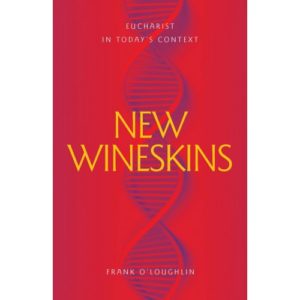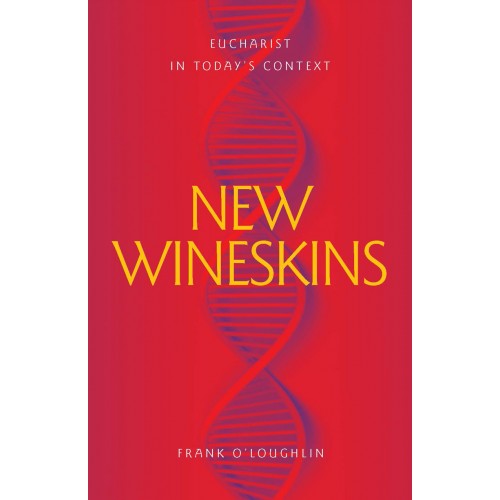Jenny Dawson Reviews New Wineskins: Eucharist in Today’s Context Frank O’Loughlin (Bayswater, Vic: Coventry Press 2019)

When Rosemary gave me this book to review, as I had requested, I wondered why ever it had been sent to the Association of Christian Spiritual Directors: a book on the Eucharist written by a Catholic priest?
Editors note: we had been accidentally sent this review copy!
Then I remembered that we are a complex and, I think, proudly ecumenical organisation, so whatever our own background it behoves all of us to learn more about the denominational theology of those who are among our members and those whom we may accompany.
Yet the eucharist can be a poisoned chalice: there is a history, that continues despite international dialogues, of exclusion of some from the table, with pain that is felt by both Catholics and non-Catholics. There is also history of a different understanding between denominations in what exactly we think we are doing in eucharist, which the author explores well, obviously from his Catholic perspective in Chapter 4.
There are other less divisive issues too, for example bread/wafers or wine/grape juice? These do not get a mention, which may seem a lack to some. He focuses on the connection between this bread and wine and the presence of Christ here and now, naming but avoiding discussion of the concept of transubstantiation as an extreme of the Reformation.
Frank O’Loughlin is a priest in the Archdiocese of Melbourne. His book, probably written for parishioners, is intended to help people “find the right starting point to begin speaking about this gift of Christ to his Church.” The shape of the book is about the everyday things that become “signs” in the Eucharist: bread, wine, memory, presence, sacrifice. The complexities of the latter are explored in terms of the etymology of the word, as the everyday things we try to make sacred in our false ideas of the holy. I appreciated the insights both of this section and of the following chapter on the word as communion with Christ.
My Catholic partner, who is uncomfortable if offered only bread at Mass, would be delighted to read that “Communion in both bread and wine…is necessary for our proper and full appreciation of the Mystery we celebrate.”
We would both be less happy with the fact that Frank O’Loughlin does not touch on the question of whether I am welcome to receive communion – as I am in the Catholic churches I attend in NZ. Yet strictly speaking the issue remains.
For me, as an Anglican whose theology is not far from what he describes, this book provides helpful background and a certain amount of challenge: I want to be sensitive and aware in my support of those Catholics (and ex-Catholics) whom I companion. The challenge comes two-fold: how I might see all or any of the sacraments connecting to the sacred work of spiritual direction, also how I might more deeply find the presence of God in everyday things.
As I have said, he makes no reference to the ecumenical issues. However, given the intended readership, what is missing most for me in this book is any fuller unpacking of the idea that “The Eucharist is the sign and foretaste of (the) new creation” (The Introduction).
The section entitled “Sharing Bread” could have developed the concept of new creation food for new creation beings, so that each receives the spiritual nourishment needed to transform the whole creation into newness, in the healing of relationships by repentance and forgiveness, in the struggle for justice and equality, in the healings of body, mind and spirit, in increasing respect for everything in God’s earth.
This would mean that eucharistic people are truly the “New Wineskins” of the title.
You can get this book from Coventry Press, 33 Scoresby Rd, Bayswater Vic. 3153, Australia (or borrow it from me!).





